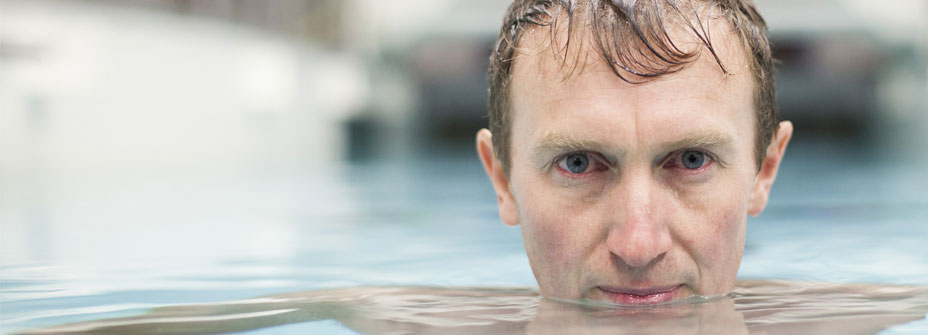
Cold comfort
Lives could be saved if people were trained in surviving sudden immersion in cold water.
Eighty-one people drowned in New Zealand last year – a record low, but still one of the highest rates for developed countries – and about 60 per cent died because of the effects of sudden cold-water immersion.
Associate Professor Chris Button (School of Physical Education, Sport and Exercise Sciences) has led a research project on behalf of Water Safety New Zealand, measuring the difference that training makes to the responses of inexperienced swimmers suddenly finding themselves in cold water.
“Most drownings don't occur because of hypothermia. Instead, they occur in the first few minutes because people are gasping, hyperventilating and panicking.”
Button says that, remarkably, the repeated experience of being in cold water, combined with mental skills training, within only one week can drastically improve people's ability to control hyperventilation, hold their breath under water and tread water.
Based on the research, Button and colleagues, Dr Jim Cotter and Professor Ken Hodge, believe that getting used to cold water, combined with skills training, should be a part of learn-to-swim courses.
The research “volunteers” had to be paid to take three-minute plunges in water as cold as 10°C twice a day for a week in the aquatic flume at the School of Physical Education.
The research results have been presented to various interested groups, including Water Safety New Zealand, Surf Life Saving New Zealand and the New Zealand Police, and published in the journal, Aviation, Space and Environmental Medicine.